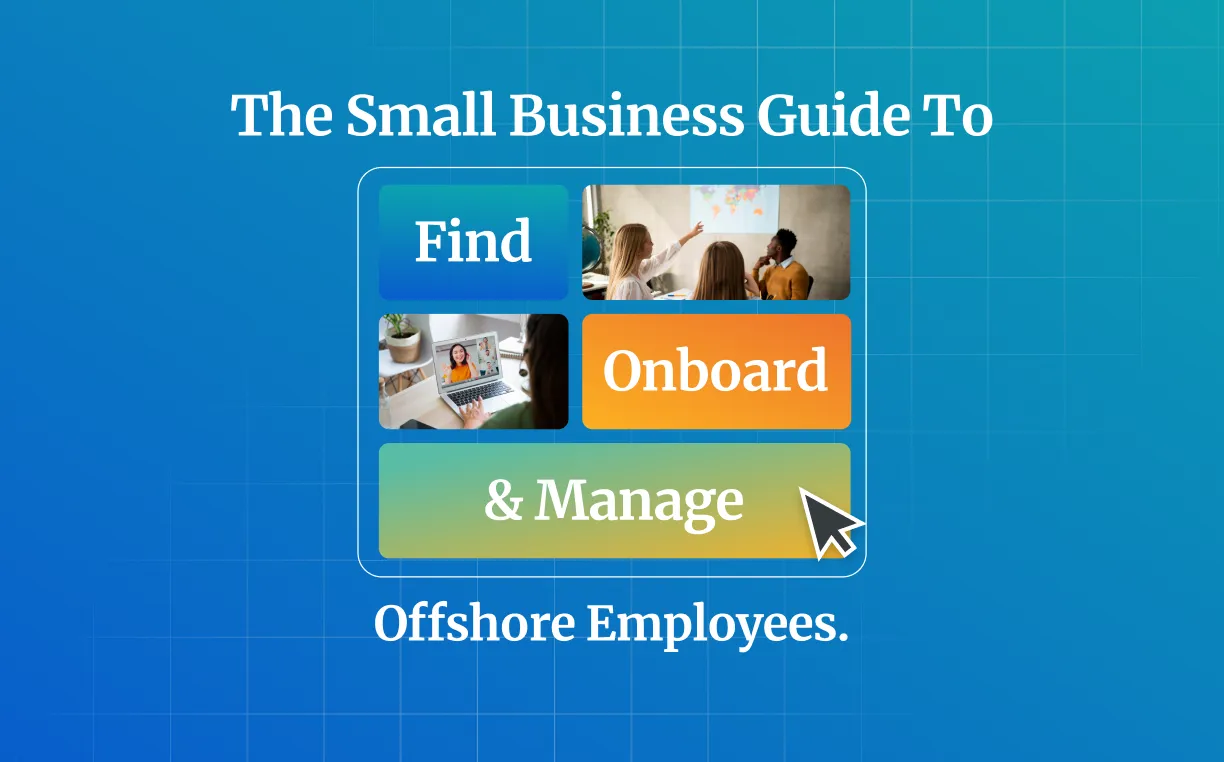5 Ways to Ace Your Next Job Interview and Land the Role
Key Takeaways:
- Research the Company and Role – Understand the company’s services, culture, team structure, and expectations to tailor your answers and show genuine interest.
- Prepare Your Personal Story – Craft a concise, authentic elevator pitch highlighting your experience, accomplishments, and relevant skills.
- Practice Common Interview Questions – Use the STAR method for behavioral questions and provide concrete examples for technical or role-specific queries.
- Demonstrate Confidence and Enthusiasm – Maintain good posture, eye contact, and clear communication; show passion for the role and company.
- Ask Thoughtful Questions – Engage with your interviewer by asking meaningful questions about the role, team, culture, and growth opportunities.
- Prepare Logistically and Technically – Ensure punctuality, dress appropriately, check your internet, camera, and microphone, and choose a quiet, well-lit location.
Congratulations, you made it to the next step! Now that you have piqued the company’s interest through your resume, it’s time to make a good first impression on your job interview.
Whether it’s in-person or virtual, preparation will make the difference. Here are 5 tips to help you excel in your interview:
How to Research the Company and Role (job interview tips)
Why company research matters
Quick Facts
- 47% of candidates fail interviews due to insufficient company knowledge.
- Prepping this way signals genuine interest and helps tailor responses.
When you sit down for the interview, you should be able to speak intelligently about the organisation’s mission, its clients, its reputation, and how your role fits in. Here’s what to dig into:
- What does the company do? What are its services?
- Who are its clients or end-users?
- What’s the company culture, and does it align with your goals? (Glassdoor or LinkedIn reviews help)
- Who might you be interviewing with? Look them up on LinkedIn.
- What is unique about the role you’re applying for: tools, jargon, team structure?
- What does the compensation and benefits package look like? Does it align with your aspirations?
How to use your research to tailor responses
Use the insights you gathered to customise your answers. For example:
- Mention a recent project the company did and relate how you’d add value.
- Use language from their website or job description.
- Show with examples how you fit their culture or work style.
2025 hiring context you should know
In 2025, the hiring landscape is more competitive and technology-driven than ever:
- Globally, 76% of employers say they have difficulty filling roles in 2025.
- 83% of companies will be using AI resume screening by 2025. This means you must go beyond the generic and prove you’ve done your homework.
Create Your Story and Personal Elevator Pitch
What a strong elevator pitch includes
Quick Facts
- Most hiring managers ask “Tell me about yourself” within the first 5 minutes.
- Your story should be concise (about 30-60 seconds), authentic, and relevant.
Your pitch should cover:
- Who you are (e.g., “I’m [Name], and I have X years’ experience in …”)
- What you’ve done (highlight a relevant project or measurable result)
- Why you’re excited about this role (connect to the company)
- A personal touch (a hobby or side interest) so you come across as more human.
Example (for a project manager role):
“Hi, I’m [Your Name], and I have over [X years] of experience in project management, particularly in the [industry or field] sector. I’ve managed projects ranging from [mention a specific project size or scope], which has given me strong experience in both leading teams and delivering on time and within budget.
I’m excited about this role because your company is doing innovative work in [mention industry or type of projects the company is involved in]. With my background in managing complex projects and my ability to adapt quickly to changing priorities, I’m confident I can bring value to the team and help drive impactful results.
Outside of work, I’m an avid , which helps me stay balanced and recharged. I also enjoy mentoring new project managers, which keeps me learning and improving my skills.”
How to weave in measurable impact
Whenever possible, include numbers or clear outcomes:
- “Managed a team of 12 delivering a $4 million product rollout ahead of schedule by 6 weeks.”
- “Reduced costs by 15% by optimising vendor processes.”
Tailoring your story for remote or hybrid roles
With remote work more common in 2025:
- Highlight your ability to lead or collaborate remotely.
- Mention tools you’ve used (eg., MS Teams, Slack, Zoom) and how you stay productive in virtual or hybrid teams.
- Demonstrate how you stay self-motivated, disciplined, and connected under remote conditions.
Practice Common Interview Questions and Use the STAR Method
What questions to expect in 2025 and how to answer them
Quick Facts
- “Tell me about a time when…” is still a staple behavioural format.
- 3-5% (estimates) of applicants actually make it to the interview stage.
- The modern candidate must be prepared for both behavioural and technical questions.
Key questions you should prep for:
- What do you know about our company?
- Describe a challenging situation and how you handled it.
- How do you prioritise when you have multiple deadlines?
- Do you work better in a team or independently?
- What are your strengths? What are your weaknesses?
- Tell me about a time you failed and how you recovered.
- Where do you see yourself in five years?
- Why do you want to leave your current role?
Using the STAR method
Structure your responses:
- Situation: Set the scene.
- Task: What was your role?
- Action: What steps did you take?
- Result: What was the outcome? Preferably with measurable results.
Role-specific / technical question prep
For more technical or industry-specific roles:
- Prepare to demonstrate skills (for example, in software, POS systems, retail support, etc).
- Use examples where you used specific tools, frameworks (.NET, C#, Python, etc) if relevant.
- Be ready to speak to vendor management, testing, or ERP/CRM experience if applicable.
Demonstrate Confidence and Professionalism in the Interview
Pre-interview logistics and appearance
Quick Facts
- Arrive or log in 10-15 minutes early.
- For virtual calls, ensure the internet, mic, and camera are working.
- Choose a quiet, well-lit space and a neutral background.
Tips:
- Dress as you would in the office (or one level up).
- Turn off interruptions (phones, notifications).
- If you’re remote and your background is messy, opt for a clean virtual background.
- Have a notepad and pen handy (even virtual).
- Bring copies of your resume, a list of questions, and maybe a water bottle.
Body language, tone, and communication
During the interview:
- Sit upright, smile, maintain (virtual) eye contact, nod to show you’re listening.
- Speak at a calm pace, breathe, and don’t rush your answers.
- If you don’t understand a question, ask for clarification instead of guessing.
- Let your interest and enthusiasm for the role come across naturally.
Virtual interview tips
- Position the camera at eye level.
- Ensure your face is well-lit (not backlit).
- Remove distractions behind you, bookcases or a neutral wall work best.
- Close unnecessary tabs/apps to avoid lag or notifications.
- Practice looking at the camera vs. looking at your own thumbnail.
Ask Insightful Questions and Show That You’re Engaged
Why your questions matter
Quick Facts
- Asking thoughtful questions signals you’re serious and have done your homework.
- It also gives you information to assess whether the role/company is a good match.
Good questions to ask at the end
Prepare 3-5 of these:
- What do the first 30/60/90 days look like in this role?
- How is success measured in this position?
- Can you describe the team I would be working with?
- How would you describe the company culture, and what do you personally enjoy about working here?
- What opportunities are there for professional growth and development?
- How does the company support continuous learning?
- What are the next steps in the interview process, and when can I expect to hear back?
Avoiding the wrong questions
- Don’t focus solely on salary or perks at the first meeting unless invited.
- Avoid questions you could have answered via a quick website visit.
- Steer clear of negative phrasing (“What’s wrong with this role?”), keep it positive and forward-looking.
FAQs
What is the best way to prepare for a job interview in 2025?
The best way is to research the company and role thoroughly, craft a concise personal story, practise both behavioural and technical responses (using the STAR method), dress and set up professionally, and come equipped with thoughtful questions at the end.
How many interviews do most job seekers have in the process?
While it varies by role, candidates who move beyond the initial screening often face two to three rounds of interviews (phone/virtual screening, manager interview, final panel). With AI screening more common in 2025, the number of candidates reaching the human-interview stage may drop.
What are the top mistakes candidates make?
- Failing to tailor responses to the company and role.
- Not practising key behavioural questions.
- Poor body language or unprepared technology in virtual interviews.
- Asking weak or irrelevant questions at the end.
- Being unprepared for technical or role-specific requirements (if applicable).
How long does the interview-to-offer process take in 2025?
In 2025, the average hiring process takes about 68.5 days from application to offer.
What trends in hiring should candidates be aware of for 2025?
- Increased use of AI and automated screening tools (83% of organisations).
- Skills-based hiring rather than just credentials.
- Remote/hybrid roles remain strong and may be preferred by many candidates.
- Candidates skipping roles due to unclear job posts: a 2025 survey found “customer-obsessed” or “rockstar” phrases in ads deterred many applicants.
Conclusion
Preparing for a job interview doesn’t have to be overwhelming. With the right research, a strong personal pitch, and thoughtful answers, you can confidently showcase your value and stand out to potential employers.
If you’re also working on your resume, don’t miss our resume tips blog to help you make a strong first impression.
Ready to take the next step in your career? Click here to apply now and explore exciting remote opportunities with AbroadWorks.




